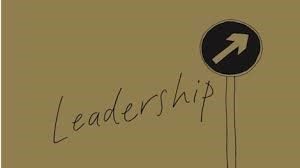 “Leadership is a choice you make, not a place you sit.”
“Leadership is a choice you make, not a place you sit.”
Robert F. Tucker
Neuroscientists studying the human brain confirm that behind everything we do is a thought. Every action is motivated by a belief, and every behavior prompted by our attitude. This straightforward understanding of how we choose to lead our lives is not new. In fact, long before psychologists, sociologists, and scientists understood this to be scientifically validated truth, it appeared in the Book of Proverbs. Over three thousand five hundred years ago we were told that people should “be careful how you think; your life is shaped by your thoughts.”
It was wise leadership advice then and remains wise advice today.
Now it’s important to understand that when I refer to wisdom I’m doing so through the lens of cognitive psychology, which describes wisdom as the ability to make sound judgments, to learn from common experiences, and to behave in ways that add value to whatever we are doing. From such a view then, wisdom is less skill, trait, or ability than it is a process. Specifically, it is a process by which we consciously align our values, our words and our ways so we can attempt to forge beauty out of the raw material of our lives. The Greeks called this ability phronesis, or practical wisdom. It is practical wisdom that equips us to use what we already know to go beyond what we currently think so we can lead our lives in a more excellent way.
Our culture is steeped in images of wise leaders from our history, including such people as George Washington, Thomas Jefferson, Abraham Lincoln, Theodore Roosevelt, Martin Luther King Jr., as well as Native American leaders such as Chief Joseph and Cochise. Each of these names reflects someone who willingly moved beyond their comfort zone to help do something to create the kind of world they desired.
At the same time, most of the leaders that shape our society on a daily basis don’t make decisions that influence the fate of a nation or affect conditions in a boardroom. But they do impact other people and in some form or fashion, may indeed influence the future of the world.
For example, if you’re a parent then your home is a leadership laboratory. Every young person you are raising is taking their cues first and foremost from you. When you place them in time out, you are helping them understand the importance of consequences; when you challenge them to share you’re helping them learn how success comes with responsibility to think of others; and when you encourage them to admit mistakes and be accountable for their actions, you are reinforcing the timeless truth that they can never go wrong being truthful.
Of course, this same logic plays out in countless ways across our nation every day. If you’re a teacher, a banker, a scientist, a businesswoman, a cashier, or in any capacity whatsoever, you are a leader. I get you may not have a formal title. I understand you may not have any direct reports or have little formal leadership experience or training. But that’s not the point. You see, because everything we do involves other people in one way or the other, we are each leading by example. What we do and how we do it makes a powerful statement, whether we recognize it or not. The way we walk in the world makes a mark, for good or bad. So the question here is not, are you a leader? The question only you can answer is, what kind of leader do you choose to be?

We retirees don’t have much of a chance of exercising our leadership skills except at home or as a volunteer; so, for the most part, the world functions without our input. Even so, some of us enjoy these leadership forums. Therefore, from the great beyond, I’ll advise those of you who are still in the game to make a difference now, because your chance to do so ends too soon.